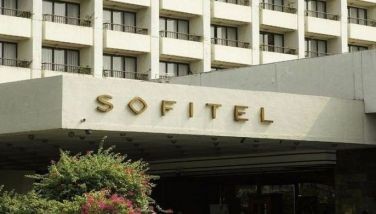Fiscal imbalance main threat to RP stability — ADB
August 28, 2003 | 12:00am
The country’s fiscal imbalance remains the biggest threat to economic stability, the Asian Development Bank (ADB) said in its country report released yesterday.
The report added that "fiscal management has become the primary barometer for assessing the government’s ability, and it credibility, to deliver on its wider economic program."
The ADB’s forecast for gross domestic product (GDP) growth rate remained in the low range of between 3.8 to four percent for the whole of 2003, and 4.5 percent for next year depending "on the pace of domestic economic reform, a supportive global economy, and no further shocks."
By "shocks", the ADB was referring to events such as the failed mutiny, and the different cases‚ involving key government officials or their extensions, as in the case of First Gentleman Mike Arroyo.
The ADB noted that the level of fiscal deficit is presently threatening economic stability as seen in the amount of debt servicing required versus funds being used for priority investments and development. Debt servicing has increased to nearly 40 percent of the budget expenditure for the whole of 2003.
Likewise, international rating agencies and fund managers are giving the country lower grades. The Philippines is also faced with an uphill climb in changing the perception of investors that the country is becoming Fiscal imbalance uncompetitive as an investment destination.
The ADB reported that the Philippines has slipped in raring global ratings such as the corruption ranking (Transparency International), competitiveness (World Economic Forum), and foreign direct investments performance benchmarked against potential (UNCTAD World Investment Report).
Likewise, its long-term sovereign credit rating and outlook have been downgraded by Standard and Poor’s and Moody’s while the country has been given a 12-month "cure period" by the California Public Employees Retirement System (CalPERS) as an investment market.
"The economy’s resilience will continue to be tested over the next couple of years as the global economic outlook remains subdued and, domestically, the authorities grapple with the deficit problem and the nation’s attention is focused on elections of May 2004," it added.
Another area of concern for the multilateral lending agency is the pieces of legislation still pending in Congress such as the economic reform bills, bills related to the power sector privatization and the
reform of the Bureau of Internal Revenue, indexing of excise tax, removal of documentary stamp tax on secondary stock transactions, increase in remuneration for the judiciary, and other pieces of legislation affecting the financial sector.
The ADB, however, gave the national government good marks for its handling of the SARS outbreak. It also mentioned the ability of the severe acute respiratory syndrome country’s central bank in
containing low inflation and higher international reserves. The government was also cited for improving exports, growing remittances from overseas workers, and stronger private consumption growth.
The report added that "fiscal management has become the primary barometer for assessing the government’s ability, and it credibility, to deliver on its wider economic program."
The ADB’s forecast for gross domestic product (GDP) growth rate remained in the low range of between 3.8 to four percent for the whole of 2003, and 4.5 percent for next year depending "on the pace of domestic economic reform, a supportive global economy, and no further shocks."
By "shocks", the ADB was referring to events such as the failed mutiny, and the different cases‚ involving key government officials or their extensions, as in the case of First Gentleman Mike Arroyo.
The ADB noted that the level of fiscal deficit is presently threatening economic stability as seen in the amount of debt servicing required versus funds being used for priority investments and development. Debt servicing has increased to nearly 40 percent of the budget expenditure for the whole of 2003.
Likewise, international rating agencies and fund managers are giving the country lower grades. The Philippines is also faced with an uphill climb in changing the perception of investors that the country is becoming Fiscal imbalance uncompetitive as an investment destination.
The ADB reported that the Philippines has slipped in raring global ratings such as the corruption ranking (Transparency International), competitiveness (World Economic Forum), and foreign direct investments performance benchmarked against potential (UNCTAD World Investment Report).
Likewise, its long-term sovereign credit rating and outlook have been downgraded by Standard and Poor’s and Moody’s while the country has been given a 12-month "cure period" by the California Public Employees Retirement System (CalPERS) as an investment market.
"The economy’s resilience will continue to be tested over the next couple of years as the global economic outlook remains subdued and, domestically, the authorities grapple with the deficit problem and the nation’s attention is focused on elections of May 2004," it added.
Another area of concern for the multilateral lending agency is the pieces of legislation still pending in Congress such as the economic reform bills, bills related to the power sector privatization and the
reform of the Bureau of Internal Revenue, indexing of excise tax, removal of documentary stamp tax on secondary stock transactions, increase in remuneration for the judiciary, and other pieces of legislation affecting the financial sector.
The ADB, however, gave the national government good marks for its handling of the SARS outbreak. It also mentioned the ability of the severe acute respiratory syndrome country’s central bank in
containing low inflation and higher international reserves. The government was also cited for improving exports, growing remittances from overseas workers, and stronger private consumption growth.
BrandSpace Articles
<
>
- Latest
- Trending
Trending
Latest
Trending
Latest
Recommended































